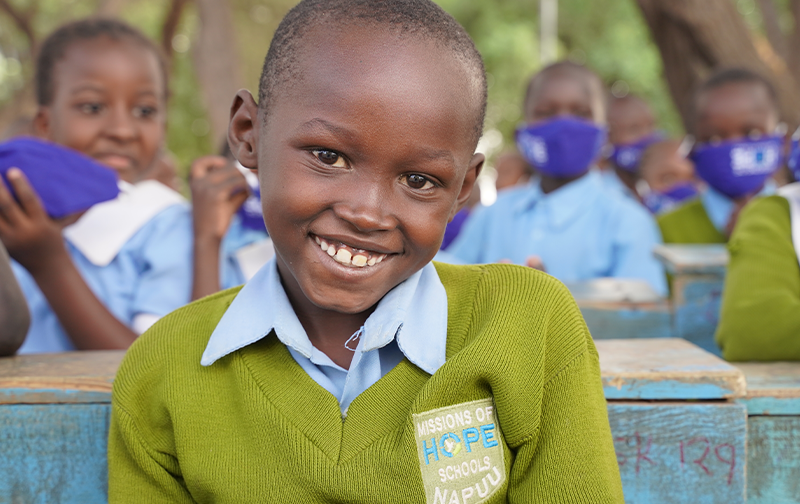
Let’s walk through the biggest concerns you might have, and what you need to know about them.
The biggest concerns about child sponsorship programs
1. The long-term effectiveness of sponsorship programs
A concern about child sponsorship programs is their long-term effectiveness. Change takes time, but there is ample evidence to suggest that child sponsorship can create a lasting change for the sponsored child, their family, and their community.
In fact, child sponsorship is shown to have a major impact on adult life outcomes, and has proven to be one of the most effective long term development interventions for impoverished children, according to research published in the Journal of Political Economy in the University of Chicago Press.
The research discovered that compared to unsponsored siblings, sponsored children:
- Are more likely to complete secondary school, giving them more opportunities for employment.
- Are more likely to graduate college.
- Are more likely to land a white-collar job, with more access to resources.
- Are more likely to become leaders in their communities and churches, thus helping other community members improve their situation.
By providing access to education, healthcare, and other essential resources, child sponsorship can help break the cycle of poverty and provide opportunities for a brighter future.
2. Accountability and transparency for distribution of funds
In this case, you might be worried that the money may not reach the intended recipients, or that it may be used for purposes other than what was intended. For example, when an organization has such high administrative or overhead costs that only a small percentage of the funds actually reach the sponsored child.
This is why it's important to carefully research organizations before making a donation, and to look for those that are transparent about their finances and efforts.
Some signs to look for in a great organization:
- They publish audited financial reports, showing how the funds are being used.
- They are reviewed or accredited by third-party organizations.
- They keep detailed records of the provision of healthcare, food, educational resources, or other services they promise to provide.
- They share photos and stories that show the results of the donation.
- In many cases, the organization will allow donors to visit the sponsored child in person.
3. The limited impact of individual sponsorships on a larger scale
While child sponsorship can make a difference in the life of an individual child, some question if individual sponsorships are enough to tackle larger societal problems.
People with this concern are weighing child sponsorship programs as part of a broader approach to addressing poverty.
So why would you choose to focus on an individual child, family or community, rather than large scale development efforts?
-
Greater individual outcomes: While a single sponsorship may not solve larger societal problems at the scale of massive development projects, it can make a profound difference in the life of a child or family.
-
Ripple effects in the community: The collective impact is larger than you might think. Sponsorship provides access to education, healthcare, and basic necessities like food and shelter, which can have a ripple effect that extends from a child to their family and community. For starters, since sponsored children have access to more opportunities, and are more likely to become leaders in their communities and churches, they can become trusted guides to help others. Additionally, many sponsorship programs (such as MOHI) also work on helping the community at large become more self-sufficient, so everyone benefits.
-
Beyond tangible support: The funds are important, but building a positive relationship with your sponsored child is an opportunity to expand your impact and make an even more meaningful difference in a child’s life. You aren’t just helping to meet tangible needs, you have the opportunity to provide love, emotional support, friendship, encouragement, mentorship and more.
-
Blessings for sponsors: While it’s not our motivation to help, the blessings are often undeniable. Child sponsorship allows you to directly support and invest in the future of a specific child. This connection can provide a sense of purpose and fulfillment, and creates a real difference that’s easier to see than a list of numbers and statistics.
A brighter future through child sponsorship
Child sponsorship is a powerful way to make a tangible and meaningful difference in the life of a child in need. Despite common concerns about accountability, effectiveness, and the larger impact of individual sponsorships, the reality is that these programs provide life-changing support to children and their families.
Moreover, for sponsors, the opportunity to directly support a specific child and see the results of your donation (through regular updates and communication) can be a meaningful way to help. You get to make an observable, personal difference in someone's life.
So, if you're considering child sponsorship, don't let doubts or concerns hold you back. Take the opportunity to make a real difference in someone's life, and to experience the fulfillment that comes from supporting a child in need. You won't regret it.


Comments